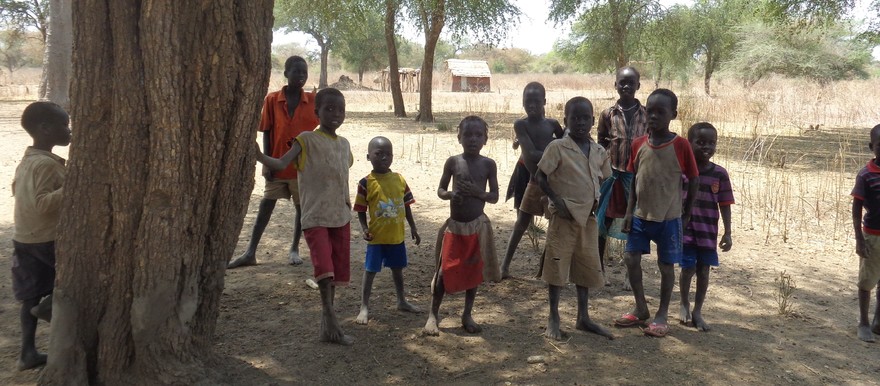Hunger worsening in eastern Upper Nile

Thousands of conflict-displaced people have run out of food in eastern Upper Nile, near the boundary between Longochuk and Maban counties, south of the Maban county seat Bunj.
UN agencies referred to the situation in reports last week, saying that pre-positioned food stocks in Maban County were running out, transportation of new supplies in the county was inhibited, and 130,000 refugees in the county received reduced food rations this month covering only a third of their needs.
Compared to the refugees from Blue Nile, the newly displaced people from elsewhere in Upper Nile state “face even worse conditions,” UNCHR pointed out.
In an interview on Tuesday, a leader of the Beneshowa host community, Omda Boutros said, “There’s still no food, clean drinking water, even the shops are empty.”
“The people of Beneshowa are suffering a lot. I don’t have any means of solving the problems of the people staying here in Beneshowa. All I can do is call on the government to help,” he said.
Simon Luel, one of the displaced people, said the communities living in Beneshowa fled from Malakal, Paloich, and Guel Guk.
They are now eating wild plants and trees. “Now it’s not going well, we need help,” he said, explaining that food supplies were exhausted and even condition of the host community was deteriorating.
Without clean drinking water and adequate food, illnesses are spreading: “There are some people who have diarrhea. A lot of people have diarrhea. And there’s no medicine.”
He said no aid organizations had brought anything to the refugees, pointing out that the refugees are concerned because there was rain on Monday and people are just staying under trees.
Mir Buk Duel, another one of those who settled in Beneshowa after fleeing conflict elsewhere in the state said, “My children are suffering and lacking food and medicine.”
Another woman said that with children starting to die, they would soon leave. This view was shared by several men too, one of whom said, “If we’re not helped soon, we will all go. Please help us.”
“There’s no shelter. We just sleep here on the ground. There’s no medicine or food. This is just a place of trees,” one woman told Radio Tamazuj.
The only alternatives for the displaced are likely to head either north back into Maban, where food supplies are already severely strained, or south into Nasser, where also there have been reports of malnutrition.
OCHA, the UN coordinating agency, reported in early February that a nutrition assessment in Nasser found that among displaced people who fled violence in Malakal and neighboring counties, 56.4% of children were severely malnourished, and another 30.4% moderately malnourished.
Related:
Supply line threatened for 130,000 Sudanese refugees (9 March)
Photos: Displaced near Longochuk, Upper Nile (27 Feb.)
Photo: Children of displaced at Beneshowa, Maban County, 26 February 2014 (Radio Tamazuj)